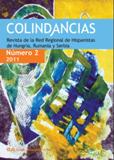La excepción americana – Cuba en la primera mitad del siglo XIX
The American exception - Cuba in the first half of the nineteenth century
Author(s): Josef OpatrnýSubject(s): History
Published by: Editura Universităţii de Vest din Timişoara
Keywords: sugar; reforms; Creoles; identity; Cubanity
Summary/Abstract: The collapse of the Spanish colonial empire in America manifested itself also on the islands that remained in the Spanish hands. The effort of the metropolis to transform Cuba into the basis for the reconquest of the continent took the form of various reforms of the economic sphere that opened for the Creoles new possibilities to strengthen their position in the production of sugar, tobacco and coffee. The augmentation of the economic power of the „sacarocracy“ led into rising ambitions of the Creole elites to reflect upon their relations with the Iberian peninsula and to search for their own identity. José Antonio Saco formulated the idea of “Cubaness“ (cubanidad) that later served as basis for the concept of the Cuban nation. When the Cuban society reached its independence at the end of the 19th century, it was, therefore, in perfect condition to confront the challenges of the day, instigated by the substantial changes on the international scene.
Journal: Colindancias - Revista de la Red de Hispanistas de Europa Central
- Issue Year: 2011
- Issue No: 2
- Page Range: 53-64
- Page Count: 12
- Language: Spanish

